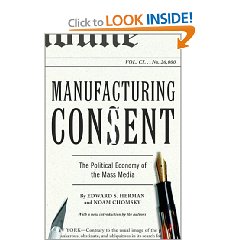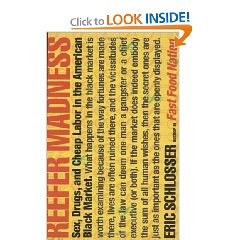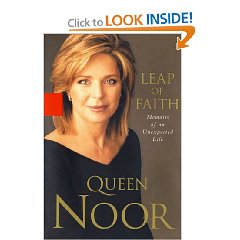When Howard Dean used the shorthand expression “guys with confederate flags on their pick-ups” he was actually talking about what some call “NASCAR dads” and Michael Weiss calls the “Shotguns & Pickups” cluster (number 29 in his first book, number 43 in this advanced and improved edition).
Although others have written about the nine nations of North America (Joel Garreau), various “tribes” across the nation, and demographics in general, Michael Weiss stands head and shoulders above all of them in providing the definitive reference work that is also a form of novel about America.
With this book he also begins the process of extending his ideas to he world, showing how neighborhoods in 19 countries can be classified into 14 common lifestyles, the bottom three being Lower Income Elderly, Hardened Dependency, and Shack & Shanty….billions of people disenfranchised by amoral capitalism, whose desperate circumstances have not quite made themselves felt, yet, in America.
I have only one major criticism of this book, apart from its obsession with understanding people in order to sell to them–it fails to go the extra mile in understanding the future consequences of each group's economic status and consumer preferences. Although the book very specifically addresses the politics of each group (predominant ideology, 1996 presidential vote, key issues), it lacks the transformation analysis that might be helpful in understanding the political economy dynamics of each group, and what might be required to craft a new national progressive consensus that reduces materialism, corruption, waste, and restores democracy, community, and sustainable national security and prosperity.
Regardless of this modest shortfall, this is an extraordinary book, as was the first that I also own (The Clustering of America). Those interested in how these clusters are coalescing into a new progressive movement that is in-front, deep green, against big business, big money in politics, and amoral globalization, might wish to read Paul Ray and Sherry Ruth Anderson The Cultural Creatives: How 50 Million People Are Changing the World, Search for “Cultural Creatives” or visit culturalcreatives.org. America is changing. This book by Michael Weiss is a brilliant snapshot of where we are today.
I want to save America from its craven politically corupt and economically bankrupt systems. This book is a first step in understanding who we are so we can transform ourselves, and our world, to create a prosperous world at peace.
Other books I recommend, with reviews:
A Power Governments Cannot Suppress
Society's Breakthrough!: Releasing Essential Wisdom and Virtue in All the People
The Tao of Democracy: Using Co-Intelligence to Create a World That Works for All
Group Genius: The Creative Power of Collaboration
Five Minds for the Future
THE SMART NATION ACT: Public Intelligence in the Public Interest
One from Many: VISA and the Rise of Chaordic Organization
The World Cafe: Shaping Our Futures Through Conversations That Matter










